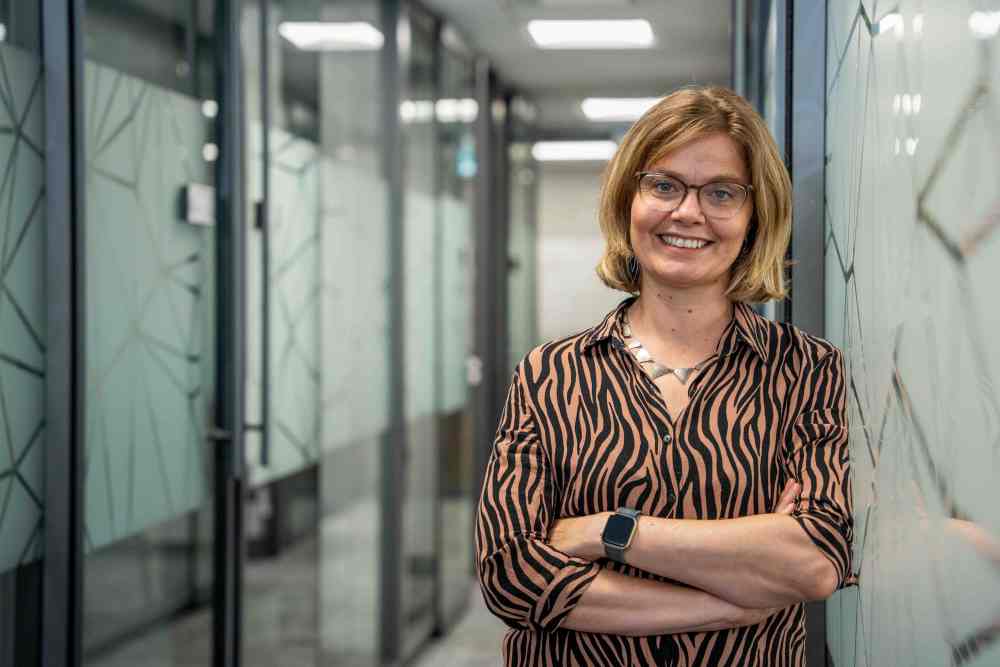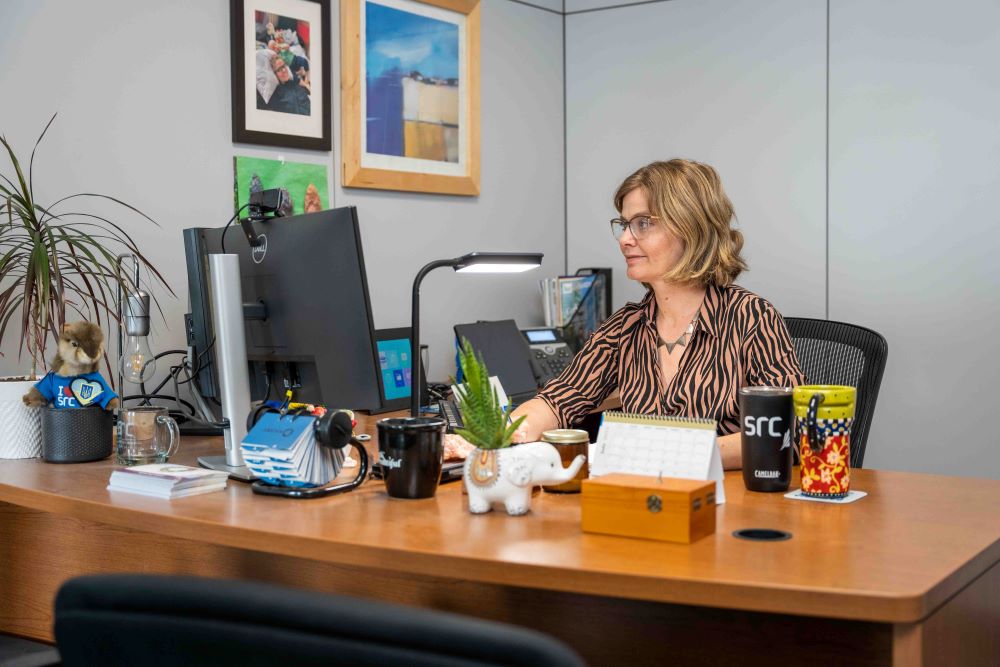
Given the wide range of services SRC offers, its Business Development team plays an important role in not only working with clients to understand their challenges, but also helping develop a suite of solutions—connecting different experts and facilities across SRC. This one-stop-shop approach has created efficiencies for clients around the world in industries such as mining, energy, environment, agriculture and rare earths.
For instance, a mining client who is doing analysis in our geochemistry laboratory may also want to look at new processing technologies. They may even have sustainability needs or climate change adaptation plans they need to develop as part of a net-zero strategy and want to engage with communities to participate in implementing this strategy.
This level of integration requires knowledge in a variety of sectors and technologies, but also the foresight to see opportunities based on future trends and shifting client needs.
“When you say you’re in business development to people, they think it means sales, but I see my role defined in many different ways,” says Lucinda Wood, Manager of SRC's Business Development team. “There is an aspect of services integration for clients, technology transfer from one sector to the next or bringing back industry needs to the organization to help develop services.”
Developing services that meet operational needs
As Canada’s second largest research and technology organization, SRC provides science and technology solutions and unique testing services based on the needs of the industry and its clients.
“I think SRC’s strength is to focus on the application side of the technology business,” says Wood. “People think that innovation is just new technologies, but it is also about unique applications of technologies or integrating them in unique ways.”
As a member of SRC’s Business Development team, Wood works with technical teams to de-risk the adoption of innovation for companies, helping clients understand what their priorities are and anticipating further needs down the road.
She promotes a proactive approach by tackling the ins and outs of new technology and the barriers to adoption.
“It’s keeping abreast of the trends, being able to bring that into the offerings for industry, being able to help them understand what’s new and then also taking that information and asking our folks what kind of things we can do to meet this need,” says Wood.
This is especially important for mining, where the technology adoption process can sometimes take longer in situations where traditional methods are engrained in current operations.
“Across the mining cycle, from exploration to remediation, there are opportunities to integrate digitization like automation, sensors and data management,” she says.
Developing sustainable solutions for industry
For Wood, business development is an important piece of sustainability, which involves looking ahead, anticipating change and ensuring that services fall within this framework.
“I think SRC has been very smart at adapting to the changes in the innovation ecosystem and industry needs and that’s why we’ve been around so long. Business longevity is really hard to achieve, and adaptability is one of the pillars of success,” she says.
Wood explains that sustainability encompasses three objectives: environmental protection, economic growth and social equity. While environmental protection is at the forefront of sustainability, economic growth is necessary to for business stability and quality of life for communities, while the equal distribution of benefits is crucial for communities and individuals.
“In the mining industry, sustainable mining or green mining is something that companies are thinking a lot about. Mine closure and transitioning to post mining operations is a good example and I think the industry has demonstrated some good progress in transforming its operations,” she says.
The increased need for metals like rare earths and lithium, and other critical minerals necessary for electric vehicles, means that mining is a key part of sustainable energy.
“Mining itself needs to be sustainable,” she says, “so we’re helping mining companies think about different solutions, such as mining or processing less waste material, that could help them achieve their goals.”

Over a decade of experience in engineering and mining
Wood’s diverse background is an asset in her role as Business Development Director. She uses her understanding of the inner workings of the mining industry to anticipate client needs.
Originally from South Africa, Wood graduated with a bachelor’s degree in chemical engineering and worked for years in gold mining operations. Working as a shift foreman and control room operator, she learned the hands-on, day-to-day activities of the mine. From there, she started working as an executive assistant in a large mining house and was exposed to the business side of mining.
After taking some business courses, Wood realized she was really interested in the social aspect of mining and decided to study sociology.
“After studying sociology, I went to work for a non-profit organization tied to the mining industry that was working to reskill and integrate mineworkers in the early 90s. We repurposed rural recruitment infrastructures,” she says.
“They then turned them into centres that helped to funnel money back into the communities.”
After some time in the non-profit sector, Wood moved to Argentina to work on a gold mining operation. She moved into process engineering design with various engineering consultancies working in the mining sector. She eventually became an independent consultant and worked on mine closure policies for Argentina’s Mining Secretary.
Building relationships
Wood brings her deep understanding of all facets of mining operations and social sciences to her role at SRC, working with diverse communities and companies both local and international.
From building relationships to strategy development to service promotion, Wood and the Business Development group collaborate with many different teams across SRC.
“I spend a lot of time translating scientific knowledge into industry or business terms and a lot of time building relationships within Saskatchewan’s resource and industrial sectors,” she says.
Wood adds that the key to business development is strong working relationships, especially when providing services to clients.
“There has to be trust, people have to know you,” she says. “In Saskatchewan, relationships are really important because even though our industries are global in scale, there is still a ‘small town’ culture of knowing the people you do business with.”
Wood and the other members of SRC’s Business Development team continuously look for areas and services that can be optimized and expanded upon, using their extensive knowledge of the industries that SRC operates in.
They work with experts across the council to bolster SRC’s already extensive suite of services to find ways to best serve industry – focusing on a one-stop shop approach, with sustainability top of mind.
